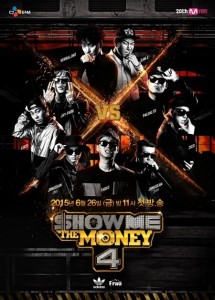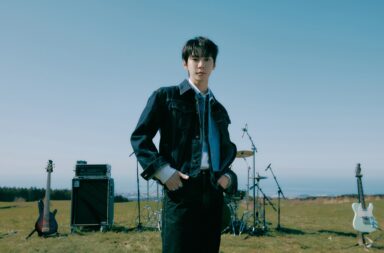 There’s an old joke that goes, “there are two fish swimming in the ocean, one is from Holland and one is from England. The English fish swims up to the Dutch fish and shouts, “Hi!” The Dutch fish panics and screams, “Waar {where}!?” because in Dutch, the word ‘haai‘ means shark and is pronounced the same as the English greeting.
There’s an old joke that goes, “there are two fish swimming in the ocean, one is from Holland and one is from England. The English fish swims up to the Dutch fish and shouts, “Hi!” The Dutch fish panics and screams, “Waar {where}!?” because in Dutch, the word ‘haai‘ means shark and is pronounced the same as the English greeting.
A misunderstanding occurs between the fish because of phonetic similarities in words in different languages. For one fish, the word is a friendly greeting but to the other, it is a marker of danger. To understand the joke, a listener must be familiar with both languages as well as the environment where a shark would be a problem. If both fish were English, no one would expect a shark and the joke wouldn’t exist because no second meaning would be implied. That’s how puns work — wordplay exploits different possible meanings of other words that sound alike. They are usually funny because the alternate meaning is a little rude or unexpected but sometimes they cross the line from humour to offensive territory.
Wanna One’s Kim Jaehwan was criticised when he used a pun on MBC‘s Show Champion where one word was interpreted as a racial slur. International fans drew attention to the use of the Korean word ‘naega’ which in the context of the segment was understood to mean the n-word. It was then inferred that international viewers did not understand Korean and as such were being culturally insensitive. To make any sense of the wires that were crossed we have to examine the situation in its entirety without ignoring pertinent context clues.
In the video, Jaehwan says according to the caption of the clip “Yo, 이/가 what’s up?! Come on!”. According to some, he was saying, “naega wasseo” meaning “I am here” and an English interpretation of the entire phrase resulted in a misunderstanding. A wholly American English reading of the phrase would have it mean “Yo, n**** what’s up?! Come on!”. MBC released a statement saying the phrase was only meant to reflect the Korean interpretation.
“As it states in the video subtitles on Show Champion ‘YaHaeJoolLaeVCR’, Kim Jae Hwan was simply saying ‘I’m here’ in a freestyle format. It wasn’t anything problematic for the broadcast. We want to let everyone know that there was no other meaning behind it. We sincerely hope there are no misunderstandings with the viewers.”
International fans of K-pop are quite aware of the phonetic similarities between the n-word and the word ‘naega’. People on all sides of the issue know the two words sound the same. There are YouTube videos poking fun at possible misunderstandings that occur with people who don’t know.
One interpretation of the clip said a pun was being made only on the Korean word ‘wasseo’ because of its phonetic similarity to the words ‘what’s up’ in English. The ‘naega’ portion of the phrase is (in this explanation) not supposed to inspire comparison with its American English phonetic counterpart: the n-word.
In the subtitles, everything besides the subject marker ‘이/가’ or ‘naega’ is in English so it’s improbable that there was no intention to make an English connection. The introduction of the English alternate meaning of the phrase ‘naega wasseo’ was informed by the English caption accompanying the word ‘naega’. That coupled with the hip hop adjacent gestures and the captioned reference to the hip hop survival show Show Me The Money provides context as well. These cues point to a knowledge of the use of the phrase, “yo n****, what’s up” in rap songs. The double meaning of the word ‘neaga’ as the n-word is implied through the accoutrements of hip hop culture.
English and hip hop (where black people use the n-word) was referenced. The expectation to believe the second part of the phrase was intended to approximate an English word but not the phonetically similar first part is logically inconsistent. That would be like writing the fish joke with the English fish saying, “ Haai! Pas op!” {Shark! Beware!} and when the Dutch fish gets scared saying “Oh, I meant ‘hi’ in English…” It doesn’t make sense.

However, according to YMC Entertainment, this is precisely the explanation people are expected to accept.
“After checking with the Show Champion producers, it was found that the phrases Kim Jaehwan used were not problematic. This is all a misunderstanding caused by International fans who misheard the Korean language and interpreted [his words] as something different.”
Perhaps the producers were intending to prevent outrage by captioning the word in Korean and the rest of the phrase in English to exclude ‘naega‘ from the pun. That approach is naive at best. Even without the captioning, 50 percent of the audio is spoken unequivocally in English and by listening alone it’s an understandable interpretation. Jaehwan’s use of the Korean phrase ‘neaga wasseo’ is not in itself problematic as it’s an innocuous Korean phrase. However, in the context of the video two languages are being used.
The idea that international black K-pop fans are oversensitive and looking for a reason to be offended needs to be put to rest. People don’t complain when ‘naega’ is used in its function as a Korean subject marker indicating self; they get upset when it’s used in a way that implies the n-word. The concept that Korean idols and hip hop artists are unaware of the phonetic similarity and are therefore blameless in using ‘naega’ under suspicious circumstances should also be stopped. The fallback excuse of ignorance does not hold water when this problem has occurred repeatedly with the same result. The defense that “he only meant naega” in the context of the clip is absurd. What adds insult to injury is the exploitation of language differences to enable problematic behaviour and then duck responsibility for it.
The open perpetuation of anti-blackness in non-black communities through the use of specific racial slurs by non-black people is still a battle being fought. Convincing people that saying the n-word as a non-black person is wrong is still happening even with explanations available in handy infographics and informative articles. The process is complicated enough but when people turn their minds to ways of avoiding social consequences, it becomes worse. Covertly using slurs instead of just saying something that does not casually participate in anti-blackness can’t be so difficult. The situation could have been avoided with a little consideration by any of the people involved. Unfortunately, it seems sensitivity to the concerns of black K-pop fans seems to be in short supply.
(Koreaboo, YouTube [1][2][3], Images via MBC, YMC Entertainment, Mnet)


